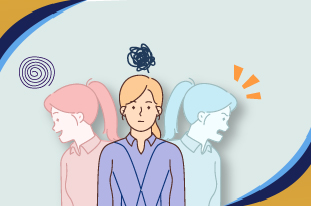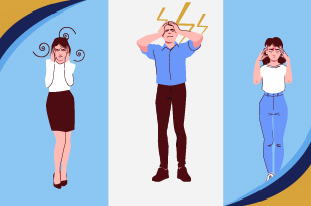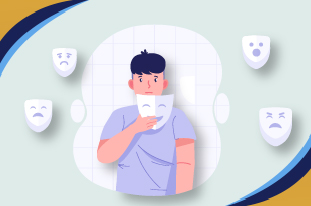The unpredictability of life can even hit a child. However, the most common mental health illness experienced by such kids is depression. Depression can severely affect the mood of a child and make them act in certain negative ways.
To learn more about the details of major depressive disorder in children. Continue reading this blog.
Key Indications Of Major Depressive Disorder In Children
Every child experiences signs of major depression differently in terms of severity and duration. A child suffering from depression will exhibit the following signs:
- Constant feelings of sadness
- Irritated mood
- Lack of interest in activities
- Hopelessness
- Decreased self-esteem
- Extreme guilt
- Social withdrawal
- Unhealthy sleeping patterns
- Lowered energy
- Changes in appetite
- Poor academic performance
- Lack of concentration
- Difficulty in making decisions
- Suicidal Ideation
- Sensitivity to rejection
- Physical complaints like headaches etc
Read More: What’s The Difference Between A Mood Disorder And A Personality Disorder?
How Common Is Depression In Children And Teens?
However, certain figures increase the chances of developing depression. As per a rough estimate, almost 3 percent of children aged between 3 and 17 have a higher risk of developing depression. Teens more commonly witness it than children. Almost 1 in 5 teens experience major depression. This is the rough ratio of only those diagnosed through a mental health professional. The actual number is much higher. Any medical illness increases the risk of a mental health manifestation. The same goes for depression in children. If a child has a history of chronic illnesses such as diabetes, epilepsy, asthma, and chronic pain then they are more likely to develop signs and symptoms of depressive disorder in childhood.
Researchers are not sure about the actual reason for the onset of depression in children and adolescents. However, several diagnosis of major depressive disorder in children show that the primary reasons can be genes and environmental factors. The following reasons often cause depression in children:
- A strong family history of depression
- Some physical illness or injury
- Sudden negative life events like losing a close person, separation, and divorce.
- Substance abuse
- Bullying or exposure to some traumatic experience.
Some Common Risk Factors Of Depression In Children
There are some risk factors linked with the onset of depression in children, including:
- Close relation with diagnosed depression.
- A previous history of mental health disorders like depression, attention-deficit/hyperactivity disorder, conduct issues, or anxiety.
- Negative childhood experiences.
- Bullying.
- Family issues.
- Death of a loved one.
- Problems with friends.
- Substance abuse.
- Puberty
Some Common Complications Of Childhood Depression
Depression usually does not come alone. It brings with it other complications too such as anxiety and substance use disorders. A child with depression will struggle in his academic area. Additionally. They may think of suicide many times. These signs can be alarming, but always remember treatment is possible. As a parent or caregiver, ensure to get in touch with the child’s healthcare provider for early identification of the signs of depression.

Read More: Can Anxiety Disorder Cause High Blood Pressure? Insights About The Connection
Best Ways To Manage The Signs Of Depression In Children
The basic ways to treat major depressive disorder signs in children are based on two different ways. The primary focus of such treatments is to sort out the factors that causes major depressive disorder in children. One is talk therapy and the other is psychiatric medication. Both these ways are effective if used alone. However, the effectiveness doubles if these are combined and then applied.
- Cognitive-Behavioral Therapy:
The primary focus of CBT is to alter the negative thoughts into positive ones. This will eventually help a child to perceive themself and the world positively. Moreover, this will eventually help them to manage their anxiety signs positively with the help of stress management coping skills.
- Psychiatric Medication:
There are several types of psychiatric medications based on the type of mental illness. However, in the case of depression, the most commonly recommended ones are selective serotonin reuptake inhibitors (SSRIs). These medications are formulated to increase the levels of decreased serotonin in a depressive condition. The following are the common SSRIs:
- Paroxetine
- Fluoxetine
- Sertraline
Can Depression In Children Be Prevented?
Childhood major depressive disorder cannot be prevented. It can be manifested in children due to several reasons such as some adverse situations and may have a biological cause. Even sometimes, parents are not there to support their child or manage the environmental stressors. Additionally, they can’t change your family history. But you can help your child by improving certain areas:
- Loads of sleep
- Regular exercising
- Maintained meals
- Supportive environment at school and home
Read More: Understanding The Connection Between Male Depression And Emotional Affairs
How Can You Help Your Child Deal With Depression?
Every child suffering from any mental health issue requires strong family support. A supportive family can speed up the recovery journey of a child. Therefore, parents need to understand that making their children feel that they are listened to and understood is important. If you, being a parent, ever notice sudden changes in your child’s behavior or mood shifts, then ensure that you are asking them questions focusing on their sudden behavior changes. Your child may feel hesitant to share their concerns and thoughts. Some factors like the following can aid in helping you keep track of your child:
- The sleeping and eating patterns of your child.
- Your child’s energy levels fluctuate.
- Side effects of any medicine.
- The way they interact with peers and family.
- Lack of interest in the activities they once enjoyed.
The primary ways to treat major depressive symptoms in children are based on two different ways. One is talk therapy and the other is psychiatric medication. Both these ways are effective if used alone. However, the effectiveness doubles if these are combined and then applied.
Conclusion!
Depressive disorder in childhood is a severe disease, which has symptoms like chronic dysphoria, increased irritability, and reduced desire to communicate with peers. CBT and antidepressants such as SSRIs must be initiated as soon as possible in patients with major psychotic disorders. As much as depression cannot be prevented, certain episodes can be prevented and children should be encouraged to share whatever is troubling them with their parents and caretakers. Additionally, parents should ensure that they compensate the children by taking them out for a vacation or buying them good stuff after they have noticed the signs of depression in them. So, if you are worried about your child’s mental health state and doubt that they are struggling with major depressive disorder, then now is the ideal time for you to consult with the best mental health experts at Orange Coast Psychiatry today!
























